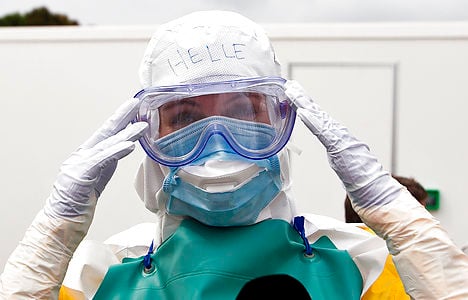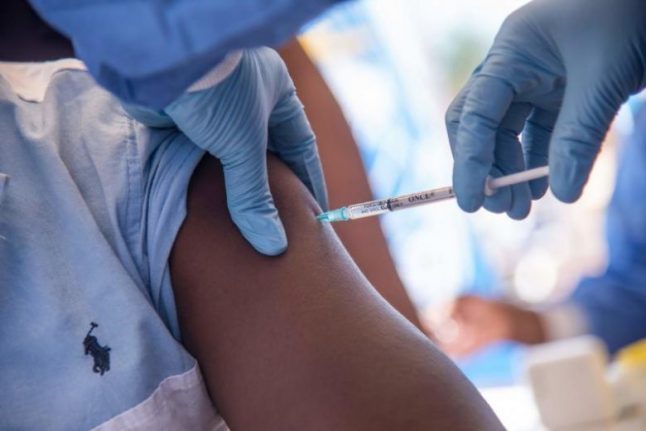EBOLA
IN PICTURES: Danish PM visits Sierra Leone
On Helle Thorning-Schmidt's landmark trip to an Ebola treatment centre in Sierra Leone, she met with Danish workers and Ebola survivors.
Published: 20 January 2015 09:53 CET

PM Helle Thorning-Schmidt at an Ebola treatment centre. Photo: Nils Meilvang/Scanpix
Prime Minister Helle Thorning-Schmidt arrived in Sierra Leone on Monday as the first Western leader to visit the country since it was hit by a deadly Ebola outbreak.
Thorning-Schmidt met with Danish health workers in the town of Port Loko and paid a visit to a Danish transport ship used to bring UN vehicles into Sierra Leone, Liberia and Guinea.
During her time at the Ebola treatment centre, the Danish PM had to undergo compulsory temperature checks and wear a full-body protective suit to guard her from the virus.
“On Monday I was in Sierra Leone to visit our workers in the fight against Ebola. They are on a dangerous assignment. Therefore it is so great that the efforts of our nurses, doctors, bio-analysts and emergency personnel is working. We should be proud of them,” Thorning-Schmidt wrote on Facebook.
“When you put on their special security uniform, you get an understanding for how hard it must be to work in it,” she added.
The PM also met with at least one local Ebola survivor.
“I also met 16-year-old Isatu, who survived Ebola. Now she is waiting to begin school,” horning-Schmidt wrote on Facebook, where she posted a picture of herself with the Sierra Leone teen.
Url copied to clipboard!


 Please whitelist us to continue reading.
Please whitelist us to continue reading.
Member comments